- OT
- Professional support
- Optical organisations
- Five insights from Westminster Eye Health Day 2023
Five insights from Westminster Eye Health Day 2023
Data connectivity, a focus on prevention, equity of access to eye care: The Eyes Have It set out seven clear policy asks during its third Westminster Eye Health Day

30 January 2024
The Eyes Have It is a partnership of Macular Society, Fight for Sight/Vision Foundation, RNIB, Association of Optometrists, The Royal College of Ophthalmologists, and Roche. Roche has funded the activities of the partnership.
Held at the Houses of Parliament in December, Westminster Eye Health Day 2023 was underpinned by a new report that detailed seven key policy asks ahead of a 2024 general election.
Commissioned by The Eyes Have It, it is hoped that the Laying the foundations for the future of eye health in England report will provide a clear path of action towards a national eye health strategy.
As Britain’s political parties shored up their manifesto plans, OT spoke to attendees from the eye health sector – including representatives from membership bodies and key sector charities – for their insight on where we are, and where we should go next.
The key asks of a National Eye Health Strategy include:
- Data, connectivity, and real-world evidence
- Prevention, diagnosis and early intervention in an integrated system
- Equity of access, support and patient empowerment throughout the patient pathway
- Increase in the eye care workforce, alongside development and upskilling
- Use of new technologies and treatment models
- Investment into research for future treatments
- Availability of treatments.
1 Data connectivity is key
AOP chief executive, Adam Sampson, was unequivocal about the most vital eye health development that optometry should see in 2024: “IT connectivity is an absolute must for the next 12 months,” he told OT.
‘Data, connectivity and real-world evidence’ is the first point laid out in the report. So, what does that mean in practical terms?
“NHS England should work with commissioners, clinicians and industry to increase IT connectivity and digital clinical image interoperability within and between primary and secondary care providers through the deployment of a single, consistent mechanism for image sharing,” the report says, adding that this would “facilitate timely, secure and effective communication to improve patient care, streamline referral pathways, facilitate quality improvement and aid learning.”
NHS Digital and the Department of Health and Social Care should also collect, publish and analyse more comprehensive data to support service and workforce planning and development and patient access to services, the report added.
Optometrist and AOP Councillor, Tushar Majithia, agreed, whilst acknowledging that steps forward have already begun to take place.
“We’re really hopeful that there will be more developments with regard to sharing of data, sharing of patient information between organisations to improve patient care, and greater development of pathways on a national level, to help reduce the backlog in waiting times,” he said.
2 Optometry should be further utilised
Majithia’s fellow optometrist and AOP Councillor, Josie Evans, highlighted how important Westminster Eye Health Day is in putting optometry at the centre of the conversation.
“It’s really exciting that we’re raising awareness of optometrists, because they do so much excellent work in community eye care practices across the nation, and yet sometimes they aren’t utilised,” she said, adding, “hopefully we will come together to build a solution that lasts for the future and is sustainable and helps our patients.”
Evans believes a solution that “allows us to be the first port of call for patients, that is commissioned across the nation, and that utilises independent prescribing, would be a really good place to start.”
She added that “encouraging the prescribing powers of community optometrists, so that if we do suspect or have a clear diagnosis in the community, we can start with prescribing, treating and managing that patient before they get into the hospital so that their treatment isn’t delayed,” would be the ideal scenario.
Managing director of the Macular Society and The Eyes Have It member, Cathy Yelf, agreed that optometry needs to be given the space to step up.
Speaking about how to redesign the eye health system so that it meets capacity and works efficiently for both the NHS and for patients, Yelf said: “We know that the optometry profession is underused, and the only contract that we have nationally is for a very small part of the eye care services that optometrists could be providing. We can’t afford to waste this resource.”
She added: “We have a strange system, where primary eye care is in the private sector and secondary care is in the NHS, and at the moment these two systems are not efficiently joined together. They need to be joined together. We need to look hard at the way eye care in primary care settings is commissioned and paid for by the NHS, otherwise we simply cannot expand the capacity enough. This is a vital resource, that needs to be employed properly.”
We know that the optometry profession is underused, and the only contract that we have nationally is for a very small part of the eye care services that optometrists could be providing
3 The whole eye health sector needs to be united in its purpose
MP Marsha de Cordova, hosting Westminster Eye Health Day, made it clear that “from industry to health to the voluntary sector, together we must continue to push for this change within eye health, and push for elements of the strategy to be included in all manifestos for all political parties ahead of the general election in 2024.”
She added: “Our message is simple: everyone should have access to high quality eye health care when and where they need it.”
Ali Rivett, chief executive of the Royal College of Ophthalmologists (RCOphth), told OT that, alongside workforce expansion and the commissioning of services in a more sustainable way, his organisation’s other big ask is coordination between primary and secondary care – something that he would like to see progress on by the end of 2024.
“The Eyes Have It helps us talk in a coordinated voice across the sector,” Rivett said. “It’s not just the RCOphth talking about ophthalmology as a specialty. It’s across the eye care sector and community as a whole, and that’s the value of this partnership. It is more powerful for us to talk as a collective.”
He added: “The challenges facing ophthalmology aren’t just challenges for ophthalmology, they’re challenges for patients across the field. At the moment, NHS services are under unprecedented demand.”
This is a key reason why The Eyes Have It and the Laying the foundations for the future of eye health in England report is calling for a national eye care plan, Rivett said.
Keith Valentine, chief executive of Fight for Sight/Vision Foundation, highlighted that “one of the things that has been important to The Eyes Have It is its pragmatism.”
The organisation brings together stakeholders from optometry, ophthalmology, pharmaceuticals and the charity sector under one campaigning umbrella, and Valentine noted that he has seen “more coordination between organisations, and a willingness to be open in planning from professional bodies, charities, and the system itself.”
He added: “The trick is to not spend too much time celebrating that we’ve got all the Lego bricks, and to start to build something out of them.”
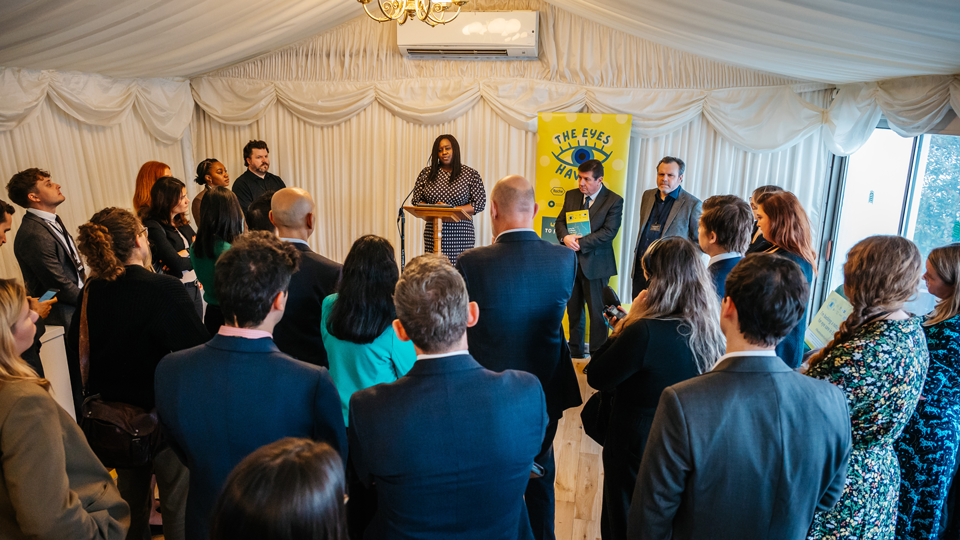
6 images
4 Success is often opportunistic
That’s the view of AOP chief executive, Adam Sampson, who told OT that Westminster Eye Health Day is an opportunity to engage “people who happen to be passing; people who know MPs” – in short, those who might have the ear of policymakers in an informal way.
“That is really important,” Sampson said, “in both reinforcing messages to MPs who are already engaged and seeking to engage MPs who have no previous experience in this.”
So, what is the value of these incidental interactions – over the coffee table or in the cloakroom queue – in terms of political engagement?
“Let’s all remember that there will be a general election, at some point, during 2024,” Sampson said. “That means that there has got to be a target of getting engagement with all the political parties over the next 12 months, to make sure eye health does actually feature as a major manifesto promise, and that the new government, whoever they might be, come in ready and equipped.”
Having an ear to the ground, it seems, is key – until whenever the general election might be, and beyond polling day too.
There has got to be a target of getting engagement with all the political parties over the next 12 months, to make sure eye health does actually feature as a major manifesto promise
5 Now is the time for optimism
Keith Valentine believes that “we should be optimistic about the right investment and the right development in the system making a profound difference to what is possible.”
“This report represents a really exciting opportunity for us to look forward to an environment where eye health, which is critical to the productivity of our country and to making sure employment rates are where they should be and that we’re dynamic and creative and forward looking, is got right,” he said.
Sampson believes that Westminster Eye Health Day “gives an opportunity to reflect: where are we? What have we achieved in the past 12 months? What is the trajectory, and what do we need to do next year?”
“It’s really important that each year, we recognise what has gone well, what has gone badly, and what is still left to do,” he said. “It’s very positive.”
Valentine added: “I think this is a moment for optimism, because the sector is pulling together to try and get something done. The Government is acknowledging and is aware that there is a call for a national plan. There’s a degree of impetus to see a connection between the eye health of the nation and the country’s productivity and the way that it functions.”
So, what comes next? How can the eye health sector ensure that the key points set out in The Eyes Have It’s report become actions rather than remaining as recommendations?
“The critical thing is not to overcomplicate things, and to focus on the things that are going to take us forward,” Valentine said, “but with a north star that it is simply not sustainable for us to continue like this.”
He added: “We have not faced this level of sight loss within the community before, because the success of the NHS is that the population is living longer, and therefore experiencing these conditions. This is the right time to be fixing it. Technology is capable of doing that. Interoperability in the system is critical. But we must step forward together if we’re going to get it done.”
Vivienne Francis, chief social change officer at Royal National Institute of Blind People, agrees that “there is goodwill” when it comes to improving eye health systems.
“I think people are coming together and that there’s hope at the moment,” she told OT. “I think it is timely, because you juxtapose that with the scale. Around two million people have sight loss right now. By 2050 that will be four million, with costs to the NHS rising to around £33 billion. That urgency is there, and that need to come together to fix this now.”
Advertisement


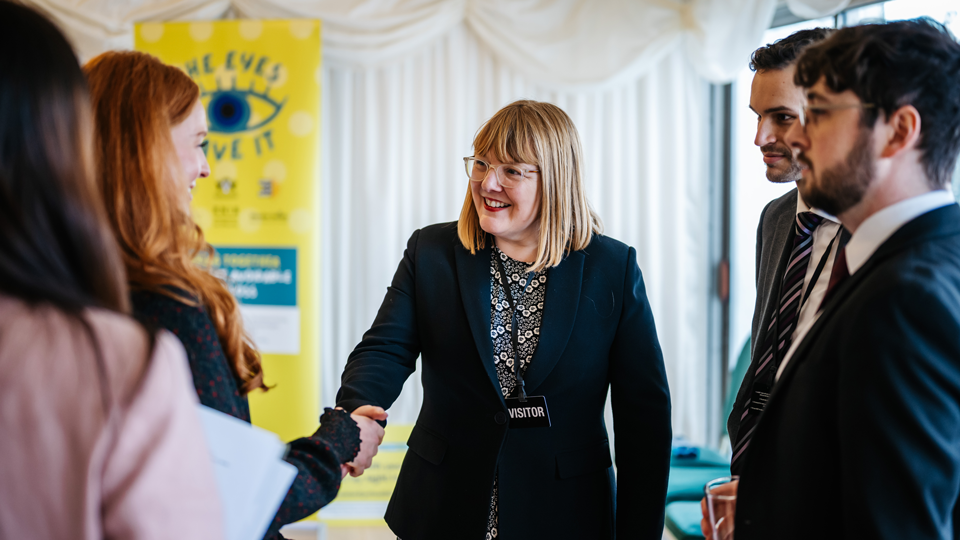
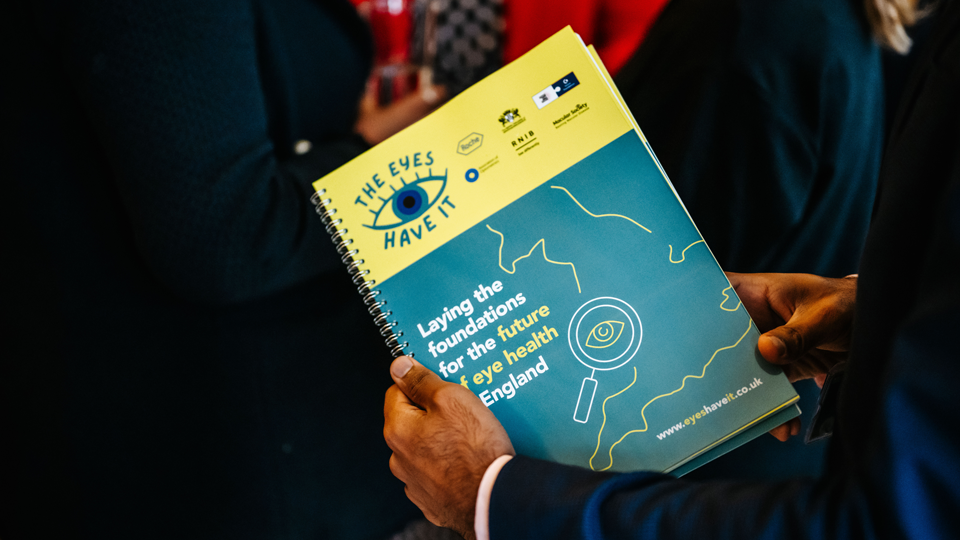
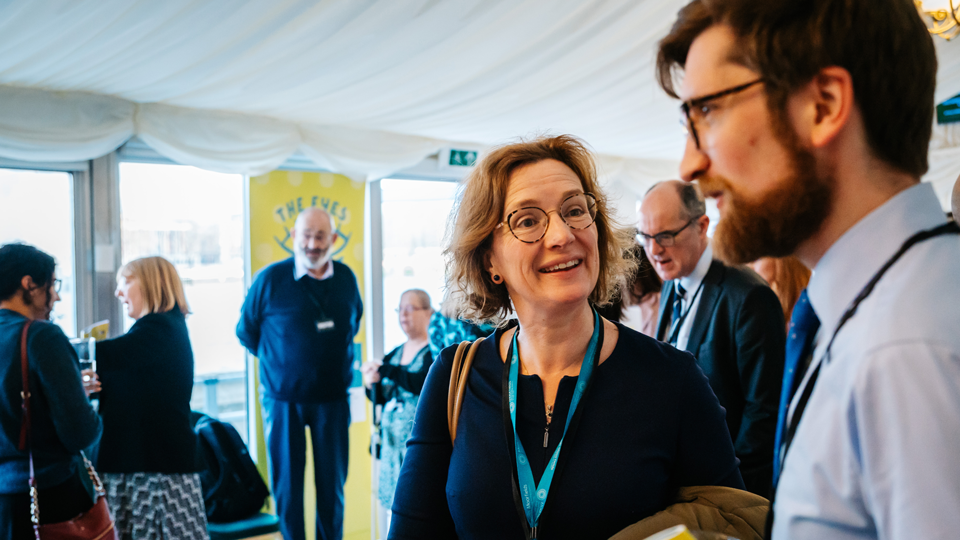
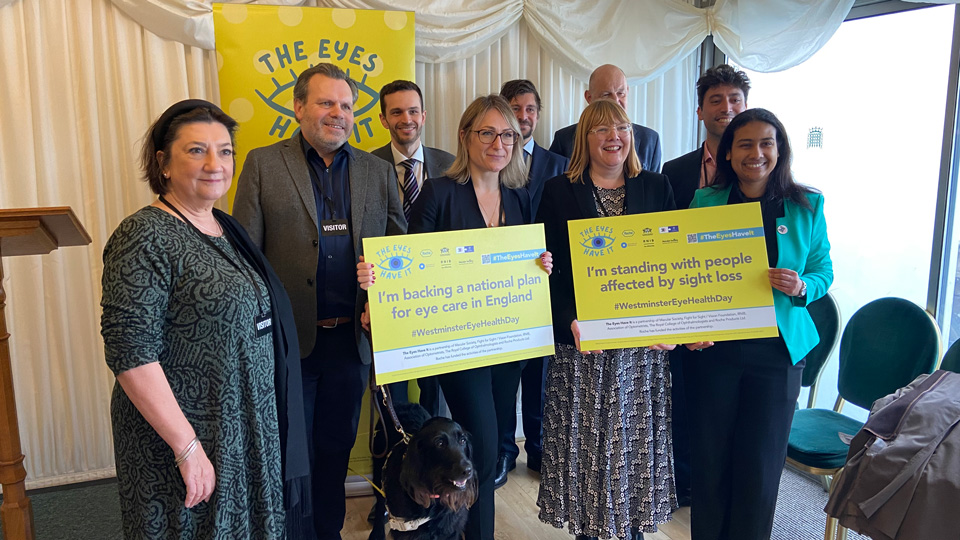
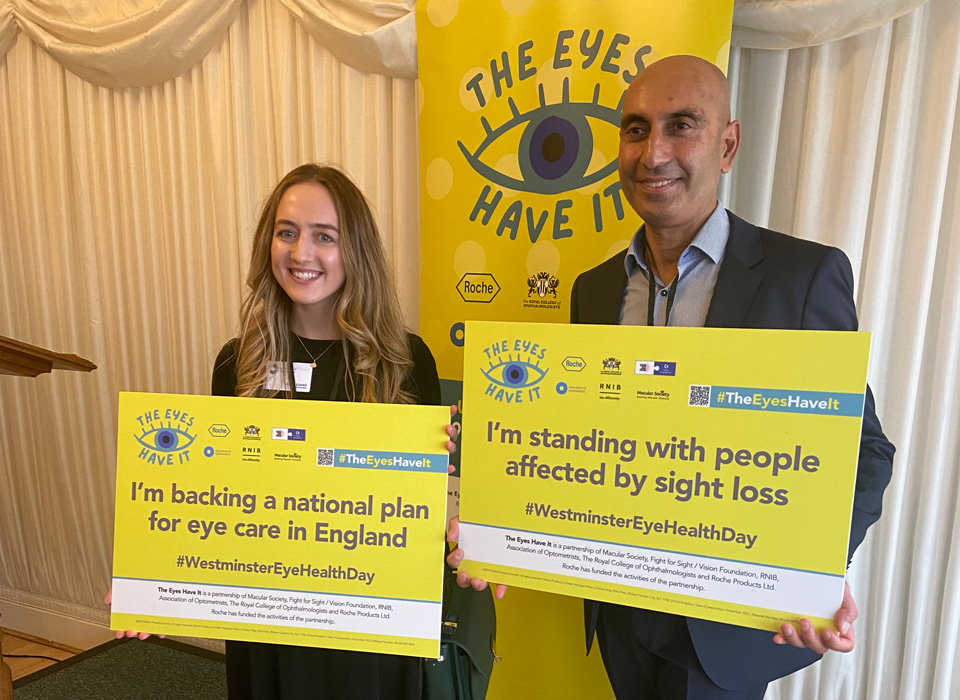
Comments (0)
You must be logged in to join the discussion. Log in